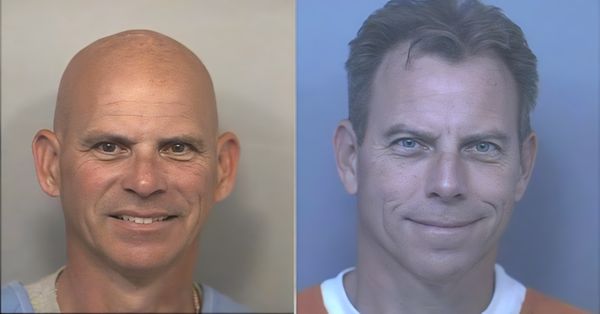
I was about 12 years old when I had my first drink. I was at a family reunion in the small country town where I grew up and an older cousin snuck a VB out of the esky and passed it around. I remember flinching at the awful taste but powering on for a few swigs anyway, wanting to be part of the gang.
In subsequent years, my drinking built up quite a bit of steam. It helped me feel less out of place in restrictive, rural social settings, where my emerging homosexuality was doing me no favours. Once I escaped to Melbourne it eased interactions with peers as I began to explore the queer community. In private, it was a coping mechanism to drown out crowded thoughts, residual shame about my sexuality and anxiety about not fitting in.
Travel was my other form of escape. When you don’t feel like you fit in at home, the prospect of not quite fitting in somewhere else isn’t all that daunting. In fact, the prospect of escaping into anonymity can be utterly intoxicating, which is why I’ve travelled and lived overseas as much as possible over the years. I’ve always enjoyed the challenge of it all. I enjoy fumbling through interactions in a strange language and finding my feet amid new customs and cultures. I enjoy navigating new cities; nothing can make you feel quite as stupid as foreign public transport, so there’s great satisfaction to be found in simply getting from A to B.
Despite the mild discomfort of the journey, I’m constantly exploring and discovering. Looking up at the horizon instead of the footpath or my phone. Taking it all in. In the end there is such a sense of achievement to know I’ve made it through the adventure.
The problem with these escapes was that the drinking (and the terrible depression it provoked) always caught up with me. I tried to quit a number of times over the years, but never lasted more than a few months. I’d be dragged back in by old habits, old friends and old demons. Until, quite unexpectedly, a serious spinal injury ground life to a halt and saw me move in with my father to recover. Back to rural Australia. I would be there until I was well again.
I had grand plans to get my drinking under control while the spinal injury mended but they fell by the wayside as I settled into country life again. The adjustment was a rocky road so, after a few months, I bit the bullet and fronted up to a drug and alcohol psychiatrist to talk things through.“You’re not going to be able to cut down,” he said bluntly after I gave him a rundown of my drinking history. “You’ll need to stop. Completely. For at least five years – if not forever.”
“Sure, but … how?” I was alarmed, self-doubt brimming like a large pour of pinot.
“Is there anything you really like doing?”
Travel was the first thing that came to mind.
He smiled. “Think about quitting drinking as a travel adventure. It will be different and awkward and make you nervous. You’ll have to navigate new social dynamics, connect with people in new ways. It will feel uncomfortable to begin with. Foreign. But in amongst those feelings, you’ll be exploring, discovering. Looking at the horizon like you described. And at the end of each day, after each milestone, will be that familiar sense of achievement.”
I left feeling motivated. Sobriety was unfamiliar territory but framed through the lens of travel, exploration and adventure? I enjoyed navigating those things.
A couple of days later I strode into the local pub to meet some friends. I’d managed to avoid drinking since seeing the psychiatrist but socialising would be the real test. I’d developed a plan to ward off peer pressure. October had just ticked over so I would say I’d signed up for Ocsober. For health reasons.
I was hyperaware as I glanced around the venue. Awash with a familiar, excitable nervousness: things felt foreign. I remember being unsure how to engage people. Struggling a bit to make conversation as I sipped on my soda water. Feeling tight in the chest, the same way I did when I had to ask a stranger for directions in a new country.
But eventually I calmed down and settled in. People didn’t seem to mind my quiet sobriety – perhaps they were relieved. The main thing was we could still have fun. I remember being proud of myself when I farewelled my friends and made my way home, and how lovely it was to wake up the next day clear-headed, energetic and ready to explore a bit more.
As Ocsober wore on, my cover story evolved. First, I invented Sovember. Then Detoxember. Dry January and Feb Fast were already reasonably well established, making Parched March my final attempt at explaining why I was still on the wagon. By April I was just a person who didn’t drink any more.
It will be five years this October that I’ve been alcohol-free, except for an accidental full-strength lager at a restaurant in Helsinki. The penny dropped that I’d been given the wrong beer about 45 minutes into dinner when I started doling out unsolicited advice.
Not drinking doesn’t feel foreign any more, it feels like home. I have no trouble socialising these days. Of course I’ve developed a few small asides to shut down awkward questions if they arise. “I’m embarrassing enough sober” is my standard offering to someone who asks why I don’t drink. Those who know me know that’s absolutely true.
More often I need to put people at ease so they know it will be OK if they drink around me. There’s always a story to tell from my misspent past if someone’s worried they’ll have a bit too much and embarrass themselves.
The best is being able to make a difference to other people. To help them wind back their drinking too if that’s what they want. A sober person in a social dynamic can be all the permission someone needs to have an alcohol-free time themselves and, if I see anyone being pressured to imbibe, I’ll come to their rescue with a deflection or a joke.
Sometimes people ask for advice to get their drinking under control, so I tell them what worked for me. View it as a new adventure. A chance to discover who you are in a different setting. Allow yourself to feel uncomfortable, take everything in and find moments to be proud of the progress you make.
This approach might not work for everyone but, even if it helps reframe things slightly, that’s a good first step.
Roland Bull is a writer and comedian in Canberra with an interest in LGBTQIA+ health







